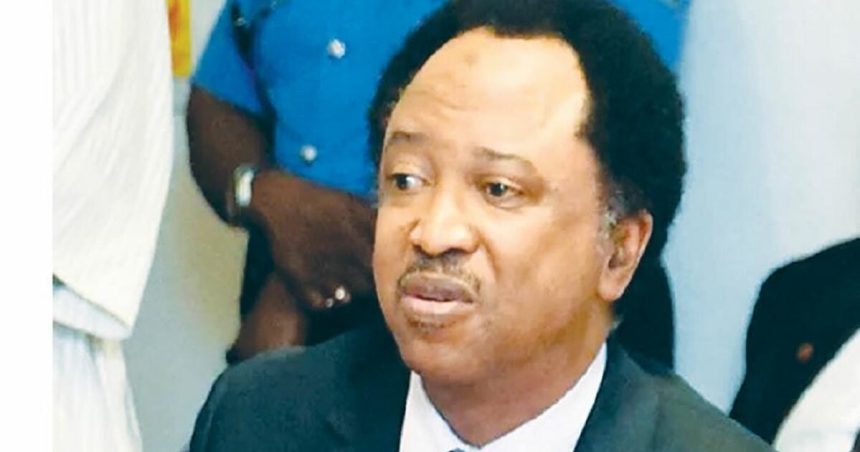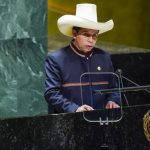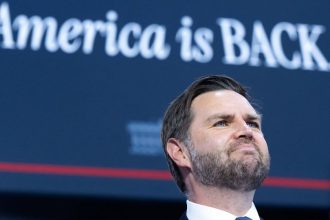Ex-Senator Shehu Sani, who represented Kaduna Central during the 8th National Assembly, has issued a stern rebuke of the threat by United States President Donald Trump to take military action against Nigeria, Arewa PUNCH reports.
The former legislator described the American leader’s remarks as unacceptable interference and reaffirmed Nigeria’s right to sovereignty and dignity.
In a statement via his X (formerly Twitter) account on Monday, Sani declared: “Some day we will all be gone. The future generations, including our children and grandchildren, will read about all that we posted and ask questions about where we stood on the urgent and controversial matters in this moment of our lifetime.
“I want history to record me among those who outrightly opposed, rejected, and unreservedly condemned any act of Mr Trump’s foreign military aggression against my country under any guise, disguise or excuse.”
He emphasised that Nigeria is “not a ‘disgraced country’ and will never be a ‘disgraced country’.”
The politician and activist added: “Anyone who is proud of his mother who gave birth to him after months of labour in his ancestral land will not accept his land being called ‘disgraced’.”
Rejecting comparisons to nations with histories of colonisation, occupation or bombing campaigns, Sani stressed: “We are not a nation that has ever colonised, enslaved or invaded any country or countries and dropped bombs and kill millions of people and plunder their resources; Without such record against other countries, we can’t be called ‘disgraced’.”
While acknowledging that Nigeria has been grappling with serious security challenges over the last 15 years, Sani welcomed “any support and assistance to our security forces that will help in crushing and annihilating terrorists in our country.”
However, he insisted that such support must respect the country’s sovereignty.
Meanwhile, he urged the Nigerian government to step up efforts to protect lives and secure the nation, pointing out that “Nigeria is the only country we can live without a visa permit because it is ours.”
He concluded by reaffirming his democratic credentials: “As a democrat, I respect but will never share the opinion of those who think otherwise, and want history to register them as supporters of foreign aggression.”
President Trump raised the possibility of deploying the U.S. military as part of efforts to stop what his administrat described as the “killing of Christians in very large numbers.”
His remarks followed the re-designation of Nigeria as a “Country of Particular Concern” over alleged violations of religious freedom.
Further responding to this, Sani accused the U.S. and its president of acting on misinformation. He criticised those he described as “anarchists, lackeys and apprentices of neocolonialism” for misleading global leaders and amplifying Nigerian struggles as religious persecution.
He argued that Nigeria’s security problems are rooted in terrorism, banditry, and communal conflict – targeting Nigerians of all faiths – and not a one-faith persecuting another.
“Terrorists and bandits in Nigeria kill and kidnap their victims irrespective of their religious beliefs. The records have been self-evident in the last 15 years,” he said.
Sani further insisted that the religious composition of Nigeria—roughly half Christian, half Muslim—makes it “technically impossible for one faith to persecute another.”
He went on: “Looking at the Muslim/Christian ratio in Nigeria, it’s technically impossible for one faith to persecute another. Nigeria is a lion and tiger situation, not a lion and a zebra configuration.”
With respect to the aid and intervention debate, the former senator pointed out clearly that Nigeria welcomes constructive support, but will not tolerate the notion of foreign military bases, foreign boots on the ground, or external forces acting under the pretext of “saving” Nigeria.
Arewa PUNCH recalls that Sani had previously warned against accommodating foreign military forces on Nigerian soil, thus advising the government to rely on the country’s own armed services.
Not a few analysts have equally pointed out that Nigeria faces a multiplicity of threats—insurgency by Boko Haram and other extremists, clashes between herders and farmers, banditry and communal tensions—many of which cut across religious lines.
Several observers caution that external threats or interventions risk exacerbating internal divisions rather than solving the root problems.
In his statement, Sani took a gaze into the future with a clear appeal to posterity: “The future generations … will ask questions about where we stood on the urgent and controversial matters in this moment of our lifetime.”
He made a conscious choice to position himself “among those who outrightly opposed … any act of Mr Trump’s foreign military aggression against my country under any guise, disguise or excuse.”









